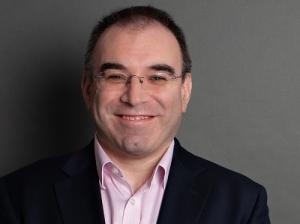Bristows successful for Novartis against Celltrion’s UK invalidity claim over Xolair
In the dispute with Celltrion over the asthma drug omalizumab, the UK High Court has ruled in favour of Novartis and Genentech. The two patent holders were not so lucky with the UPC case.
5 February 2025 by Mathieu Klos
The British part of EP 3 805 248 is valid. The UK High Court handed down the ruling last week (case ID: HP-2023-000024). As part of a stratgey to clear the way for a biosimilar product of the asthma drug omalizumab, Celltrion had filed a revocation action against the patent with the UK court.
EP 248 belongs to Novartis and Genentech and covers a specific formulation of the active ingredient omalizumab. It allows the stable storage of the monoclonal antibody in liquid form for administration in pre-filled syringes, for example. Previously, omalizumab was only marketed in solid form as a powder that had to be dissolved in liquid before each application. The active ingredient forms the basis for Novartis’ biologic Xolair, which is used to treat allergic asthma and chronic hives.
The two patent holders had responded with a counterclaim for infringement. UK High Court judge Richard Hacon has now ruled that the patent is valid and infringed.
Very close case
Judge Hacon is convinced that the breadth of the patent claim is very narrow. But in his opinion, the patent is based on an invention. Essentially, the parties had argued over the formulation of the preparation and whether the composition protected by the patent constituted an invention.
The judgment barely addresses whether Celltrion infringes EP 248 with its biosimilar product. Celltrion had admitted infringement if the patent is valid. There will be no seperate trial on infringement.
Celltrion can now seek permission to appeal from Richard Hacon.
Celltrion seeks revocation
The EPO granted EP 248 in 2023 but Celltrion believes it is invalid. The company filed an opposition at the EPO and revocation actions not only at the UK High Court but also at the District Court The Hague.
At the EPO, Celltrion has opposed the grant of EP 248 with the support of Hoffmann Eitle, as has the London patent attorney firm Kilburn & Strode as a straw man.
Meanwhile, the EPO Opposition Division stated in its preliminary opinion that the granted claims of EP 248 comply with the EPC and that the oppositions should be rejected. The EPO has scheduled an oral hearing for early April.
No imminent infringement
Celltrion was more successful at the UPC, where the dispute came to a head last summer. At the Düsseldorf local divison the two patent holders accused Celltrion of wanting to bring a biosimilar of Novartis’ Xolair onto the market despite the fact that patent protection still exists.
Novartis and Genentech presented evidence which they believe pointed towards imminent infringement by Celltrion. Among other things, Celltrion had applied for market authorisation for the EU for a biosimilar containing the patented formulation, marketed under the brand name Omlyclo. Celltrion received authorisation for its Hungarian subsidiary in May 2024.
The patent holders applied to the UPC for an injunction to prevent an actual infringement. However, Celltrion rejected the accusation. The company argued it was merely preparing for a timely market entry for its biosimilar once EP 248 expires.
UPC case over
In September, the local division dismissed Novartis’ application for provisional measures. The judges ruled that “at the time of the Court’s order, there is not yet sufficient evidence that the infringement is imminent”.
But they also pointed out that Celltrion’s formulation makes use of the technical teaching of EP 248 and that eight Celltrion subsidaries are cumulatively liable for their actions. Therefore, in the opinion of the court, Celltrion is currently protected by the fact that it has not yet marketed its own product. Furthermore, Celltrion had also questioned the validity of EP 248 but the UPC judges did not comment on this.
Because Novartis and Genentech did not appeal the decision, the UPC case is closed for the time being. Now Celltrion must hope for a favourable outcome at the District Court The Hague. Here Celltrion has not only initiated a revocation action against the Dutch part of EP 248, but also applied for a declaration of non-infringement (case ID: C/09/660292/24/082). The court heard the case last Friday. A judgment is expected in late March at the earliest.
Bristows and Three New Square for Novartis
Celltrion relied on teams from Bird & Bird in the Netherlands, in the UPC proceedings and in the UK trial. Lead partners in the UK proceedings are Patrick Kelleher and Chris De Mauny. Legal director Henry Elliott and associate Phillipus Putter provided support. In the UPC proceedings, Düsseldorf-based partner Oliver Jüngst took the lead while Marc van Wijngaarden leads the Dutch case.
- Patrick Kelleher
- Iain Purvis
Iain Purvis and Adam Gamsa were Celltrion’s barristers in the UK revocation trial. Both work at IP barristers’ set 11 South Square.
Novartis’ go-to IP litigation firm in the UK is Bristows. Partner Rachel Mumby took the lead alongside of counsel Adrian Chew and associates Olivia Henry and Ben Reeves. Barrister Thomas Mitcheson and Stuart Baran from Three New Square represented Novartis and Genentech in the courtroom.
- Tom Mitcheson
- Rachel Mumby
In the UPC proceedings against Celltrion, however, Bristows played more of a supporting role and advised in the background. The lead here was Frank-Erich Hufnagel, a partner of Freshfields in Düsseldorf. Amsterdam based partner Rutger Kleemans and patent attorneys from Carpmaels & Ransford were also involved. A Carpmaels team around Cameron Marshall leads the EPO opposition proceedings on behalf of the patent owners.




